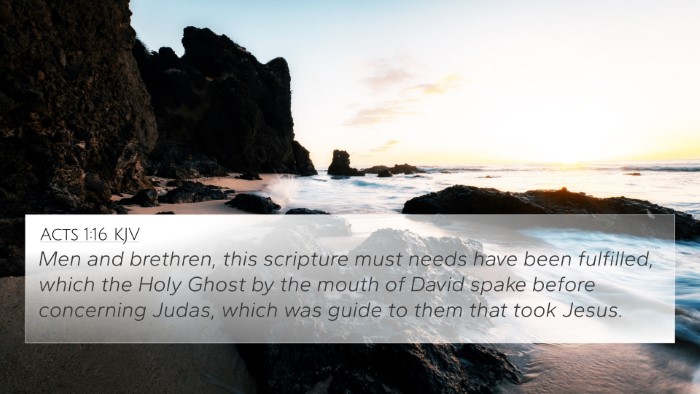Understanding 1 Timothy 5:24
The verse 1 Timothy 5:24 states, "The sins of some men are obvious, reaching the place of judgment ahead of them; the sins of others trail behind them." This verse holds significant meaning regarding the nature of sin and judgment, as well as the elements of accountability and transparency in the Christian life.
Summary of Interpretations
When interpreting this verse, several public domain commentaries provide valuable insights. Below is a summarized approach to understanding the essence of 1 Timothy 5:24.
Key Themes from Commentaries
- Visible vs. Hidden Sins: Matthew Henry notes that there are sins that are apparent and lead swiftly to judgment, while others may not be visible until later, suggesting a differing timeline of accountability.
- Divine Justice: Albert Barnes emphasizes that God's judgment is just, revealing that both evident and hidden sins will eventually be accounted for. While some may seem to escape immediate reproof, they will not go unpunished.
- The Importance of Accountability: Adam Clarke describes how this verse reminds believers of the necessity for honesty and integrity. The visible sins act as a warning to others about the serious nature of unrighteousness.
- Encouragement for Righteous Living: The verse serves as a call to live openly and avoid sin, as it ultimately draws negative attention and may result in divine judgment.
Bible Cross-References
To provide a broader context, here are numerous Bible cross-references that connect with 1 Timothy 5:24:
- Hebrews 4:13: "Nothing in all creation is hidden from God's sight; everything is uncovered and laid bare before the eyes of him to whom we must give account."
- Galatians 6:7: "Do not be deceived: God cannot be mocked. A man reaps what he sows."
- Ecclesiastes 12:14: "For God will bring every deed into judgment, including every hidden thing, whether it is good or evil."
- James 5:16: "Therefore confess your sins to each other and pray for each other so that you may be healed. The prayer of a righteous person is powerful and effective."
- Numbers 32:23: "But if you fail to do this, you will be sinning against the Lord; and you may be sure that your sin will find you out."
- Luke 8:17: "For nothing is hidden that will not be made manifest, nor is anything secret that will not be known and come to light."
- Romans 2:16: "This will take place on the day when God judges people's secrets through Jesus Christ, as my gospel declares."
Thematic Connections
Thematic Bible verse connections can further enhance the understanding of this scripture. By examining the concepts of sin, judgment, and accountability throughout both the Old and New Testaments, we can derive crucial life lessons.
Connections Between Bible Verses
- Explorations of how this verse connects with teachings about transparency in the Christian community.
- The relationship between works and faith as discussed in James 2:17-18.
- Comparative analysis with Proverbs 28:13, which discusses covering sins and obtaining mercy.
- A thorough examination of the parables taught by Jesus, reflecting similar themes about sin and accountability.
Methodological Guidance
For those wanting to delve deeper into similar verses or understanding the nuances of sin and judgment, various tools for Bible cross-referencing are available. By utilizing a Bible concordance or cross-reference Bible study guide, readers can trace thematic connections and analyze comparative scripture effectively.
The cross-reference system encourages examining, for instance, identified connections between Old Testament teachings (like those in Psalms) and New Testament applications found in the Pauline Epistles. Furthermore, by conducting a detailed cross-reference study of the Gospels, believers can uncover parallels that enrich their understanding of scripture as a cohesive narrative.
Conclusion
In conclusion, the insights provided by Matthew Henry, Albert Barnes, and Adam Clarke regarding 1 Timothy 5:24 confirm that while sins may manifest at different times, all are ultimately revealed before God. This understanding invites readers to reflect on their own lives and to ensure they practice transparency and integrity, living in accordance with God’s will as they await final judgment.









